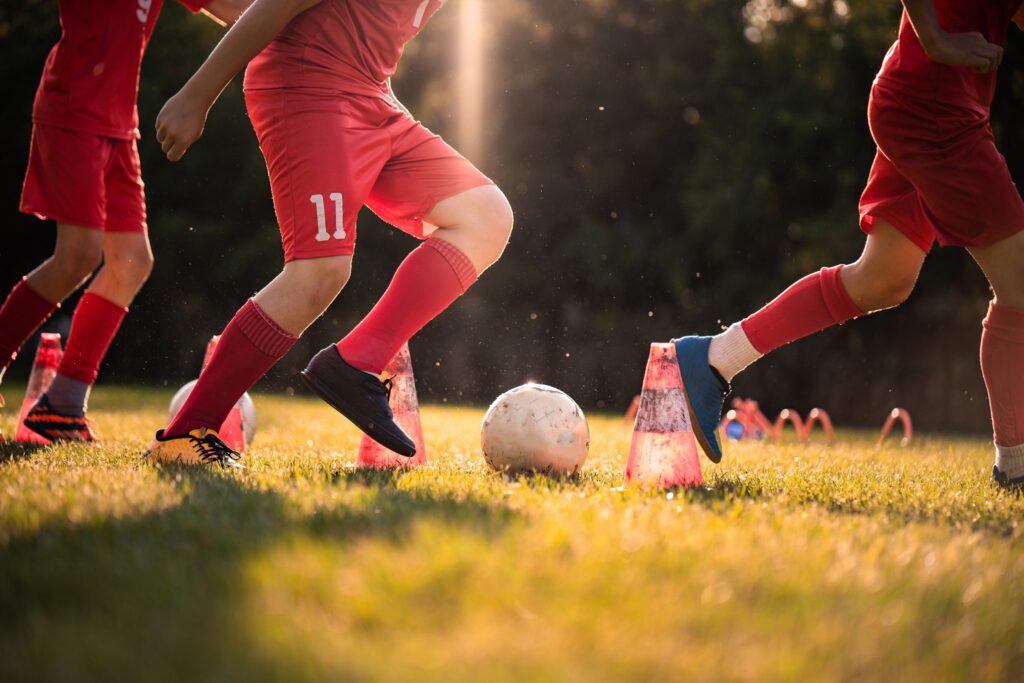
Welcome to the ACL Rehabilitation: Part 5 blog
After successfully meeting the criteria for progressing from the previous phase. ACL Rehabilitation: Part 5 will look at the transition and critera for the athlete to return to full training and competition.
This phase is a thorough, highly individualised period that aims to tick all the boxes ahead of returning to playing sport.
Although it is essential that the knee is ready for sport, it is equally important to ensure that the person as a whole is ready to return to sport following ACL reconstruction. The athlete must have the confidence and be in the right psychological state to return.
Returning to a normal training environment is not considered the end of the rehab process. Rather, it is an extremely important part in getting an athlete prepared for a return to competition. The training environment is somewhat controlled. It exposes the athlete to demands as close to competition as possible, and introduces less predictable movements than gym based sessions.
Effectively you are transitioning from the CONTROLLED environment of gym rehab to the CHAOS and unpredictability of sport. They call this the ‘Control-Chaos Continuum’. The longer an athlete can stay in the training environment before returning to competition the more prepared they will be.
ACL Rehabilitation Goals for Phase 5:
The emphasis of this stage moves from restricted to unrestricted training in a progressive manner. Leading to a full return to sport when the athlete is assessed as being ready. Current research indicated a minimum of 9 months before return to sport. This must be guided by the athlete’s surgeon, and on passing key assessment criteria. The ACL group in Melbourne Australia, highlight the 3 following benchmarks to be considered:
- A score of greater than 95 on the Melbourne Return to Sport Score
- The athlete is confident and comfortable to return
- A re-injury prevention program is in place to reduce the risk of future injury. This program should be performed before each training session and game.
The Melbourne Return to Sport assessment is a very thorough assessment that covers things such as:
- Stability, swelling, range of movement
- Psychological readiness questionnaires
- Functional testing looking at balance, hops, strength etc. These are tested in both a non-fatigued and fatigued state
- General fitness testing. This could be any two of the following: Bleep test, Agility T Test, Timed Run, Sprint Test, Illinois agility test, Bruce protocol.
If you would like any further details on the testing, please do get in touch at alex@central-therapy.uk.
The final post of this series on ACL Reconstruction rehabilitation will focus on the prevention of re-injury after returning to sport. Tune in to finish the journey…!


